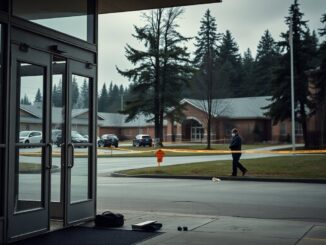A deep dive into the nuances of Arsenal's interest in Rodrygo, evaluating market dynamics and implications.

Topics covered
In the unpredictable world of football transfers, the chase for a player often sparks more questions than answers. Take Arsenal’s reported interest in Brazilian winger Rodrygo, for instance. With a hefty price tag of €90 million attached, one can’t help but wonder: Are clubs getting too caught up in the allure of big-name signings? Or are they genuinely looking for solutions to their on-field dilemmas?
Unpacking the economics of the transfer market
When we dive into a potential transfer of this scale, it’s essential to cut through the noise and examine the facts. Arsenal’s rumored bid of €90 million for Rodrygo isn’t just a flashy headline; it’s a reflection of their urgent need for attacking power after a season where they stumbled in their title pursuit.
With Kai Havertz finishing as Arsenal’s top scorer in the Premier League with just nine goals, it’s evident that change is necessary.
But let’s talk about the financial ramifications here. A €90 million price tag raises critical questions about the club’s spending strategy.
How does this align with key business concepts like Customer Acquisition Cost (CAC) and Lifetime Value (LTV) in football? If Arsenal doesn’t achieve a product-market fit with Rodrygo—meaning he fails to meet expectations—this hefty investment could quickly turn into a financial headache.
Lessons from transfer investments: Successes and failures
History is riddled with clubs that have overspent on players who ultimately fell flat. I’ve seen too many startups fail to grasp that chasing the latest shiny object without a solid plan often leads to ruin. Just look at Philippe Coutinho’s transfer to Barcelona: initially celebrated as a masterstroke, his performance failed to justify the massive fee, leading to complications and his eventual exit.
Arsenal needs to approach this situation with caution. The interest from Manchester City adds another layer of complexity, as Rodrygo weighs his options. The real question is whether he would slot into Mikel Arteta’s long-term vision, or simply become another name on a list of high-profile signings that didn’t pan out.
Key takeaways for founders and product managers
For founders across industries, including sports management, the insights from this scenario are invaluable. First and foremost, understanding the genuine needs of your organization is crucial. A data-driven approach is vital in determining if a potential acquisition aligns with your strategy and market demands. Furthermore, having a clear integration plan for new talent is essential. Without it, the risk of high churn rates skyrockets.
Additionally, consider the long-term sustainability of your investments. Just like in startups, where burn rate and product-market fit are critical for survival, these same principles hold true in the transfer market. Clubs must resist the temptation of short-term gains that could jeopardize their long-term viability. Arsenal’s focus on enhancing their attack is commendable, but they must ensure that it translates into a cohesive and effective team.
Actionable insights for industry stakeholders
As this transfer saga unfolds, several actionable insights emerge for stakeholders in the sports industry. First, prioritize data analysis over emotional decision-making. Scrutinize player performance metrics and ensure they fit within the squad before making substantial investments. Second, always have a backup plan ready. If a target player chooses another club, having alternatives in mind is crucial—an agile mindset is invaluable in this fast-paced environment.
Finally, embrace transparency with fans and stakeholders. Just as in tech startups, where clear communication can ease tensions, in football, explaining the rationale behind transfers builds understanding and support. In conclusion, Arsenal’s situation with Rodrygo encapsulates the broader challenges in the sports transfer market. By focusing on the underlying business dynamics instead of getting swept up in the hype, clubs can make informed, sustainable decisions that will pay off in the long run.




